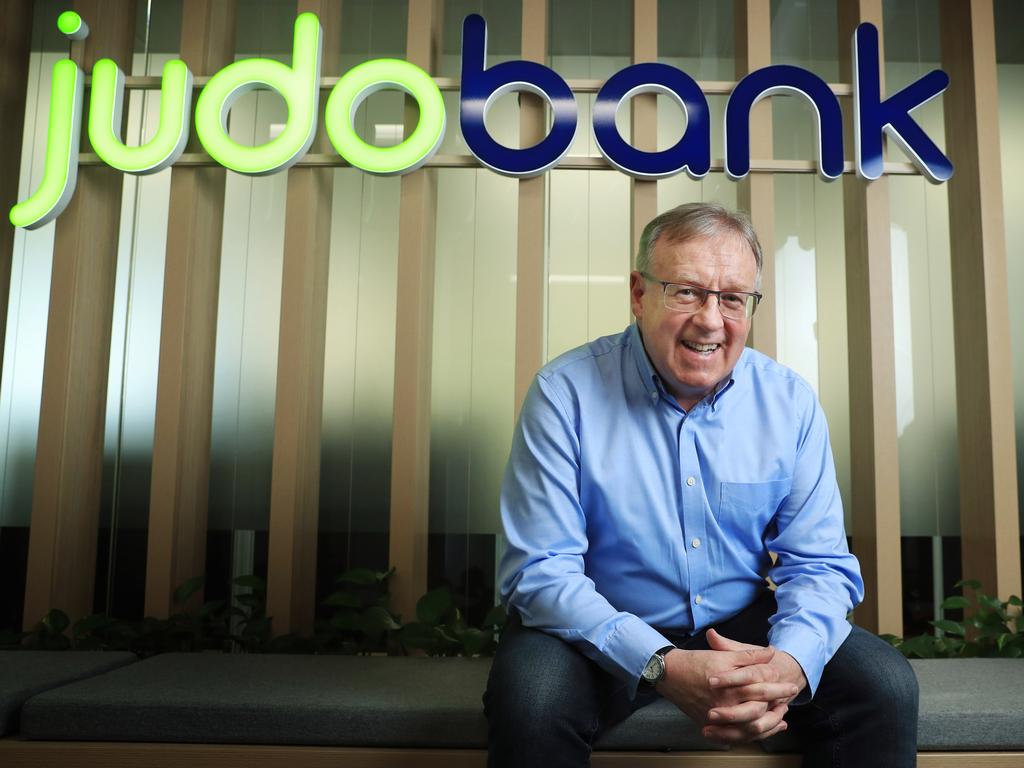Judo Bank leads LinkedIn’s 2023 top companies list
A small Aussie company which asks employees to come to the office 50 per cent of the time has been named the country’s best workplace.

A small Aussie bank with no physical branches has been named the country’s best workplace for 2023.
Judo Bank, a small and medium-enterprise lending focused bank that also offers some of the best retail term deposit rates on the market, has come out number one in LinkedIn’s latest Top Companies list.
The professional networking site’s annual listing ranks companies based on eight career progression criteria — ability to advance, skills growth, company stability, external opportunity, company affinity, gender diversity, educational background and employee presence in the country.
With 522 employees, Judo Bank edged out Commonwealth Bank and NAB for the top spot on this year’s list, which featured a diverse range or industries including mining, consulting and biotech.
Jessica Lantieri, chief people and culture officer at Judo Bank, said one of the key differences at the challenger bank was that as a “relationship lender, teamwork is very much at the heart of the way we work”.
“Our reward program reinforces that — it’s designed to recognise ‘we’ over ‘me’,” she said. “We don’t have individual sales targets. It’s in the way our teams are designed.”
Ms Lantieri said another of the bank’s founding principles was “we seriously detest bad bureaucracy, we encourage people to challenge the status quo”.
“Thirdly is an owner’s mindset — everyone’s empowered to make decisions,” she said.
Matt Tindale, LinkedIn managing director for Australia and New Zealand, said the companies were ranked “based on how they help build careers and set up long-term success for their employees”.

Hiring ‘definitely slowing’
Mr Tindale said the “overarching headline” this year was that hiring had “definitely slowed” despite low unemployment.
“In Australia we’ve seen a 35 per cent decline year-on-year March to March, that is off big post-pandemic highs but hiring is definitely slowing,” he said.
“The job market is very buoyant. We’re now seeing about three applicants for every role that’s advertised on LinkedIn, that’s double since last year. There is a tight labour market despite slowing hiring.”
Some of the top sectors in terms of demand for employees are oil and gas mining, government administration, hospitals, healthcare and education.
While the tech sector has been rocked by mass lay-offs over the past 12 months, Mr Tindale said a lot of those workers’ skills were still in demand and they were moving to other sectors such as professional services, finance or manufacturing.
Australia’s unemployment rate fell back to 3.5 per cent in February, with about 65,000 more people in work and the number of unemployed falling by 17,000, according to the Australian Bureau of Statistics.
The lower-than-expected number came ahead of the Reserve Bank’s decision to pause after 10 months of consecutive interest rate rises at its April meeting earlier this month.
“The labour market remains very tight,” RBA governor Philip Lowe said in his statement.
“The unemployment rate is at a near 50-year low and underemployment is also low. Many firms continue to experience difficulty hiring workers, although some report an easing in labour shortages and the number of vacancies has declined a little. As economic growth slows, unemployment is expected to increase.”

Flexible work ‘non-negotiable’
Ms Lantieri said a clear trend among jobseekers was a “preference from candidates to work for organisations that have a clear purpose and values, and that those values are actually lived and not lip service”.
“Gen Z want to work for a company that has a clear purpose, social licence to operate and they’re passionate about inclusion, equity and diversity,” she said.
Candidates are also “prioritising job security due to economic uncertainty”, but at the same time are demanding flexible work arrangements and other perks.
“Flexibility is a non-negotiable in the talent market,” Ms Lantieri said.
“We have our ‘Flex at Judo’ framework. We encourage people to be in the office five days a fortnight or 50 per cent of the time.”

Judo employees get an extra two weeks of annual leave each year for a total of six weeks, and also “big life event leave” once a year to spend on “something important to them”.
Mr Tindale said search data on LinkedIn showed that “first and foremost” flexible work was “in incredibly high demand for employees”.
But he said career development was also “very high on people’s agenda — learning new skills, internal mobility”.
“And over the last few years, during and post-pandemic, we’ve seen a real increase around demand for purpose-driven organisations,” he said.






